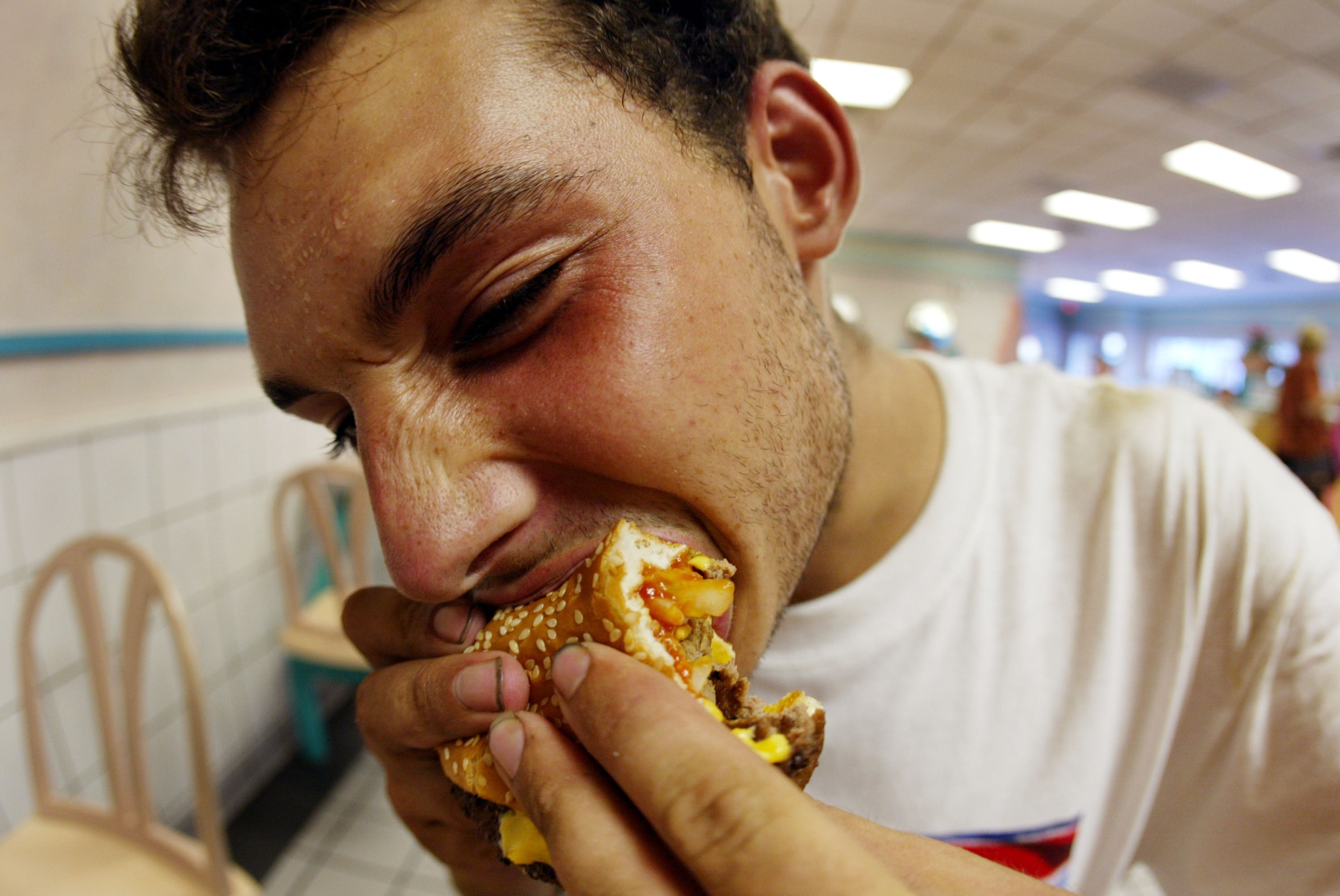A diet rich in ultraprocessed foods could impact your performance in bed.
Foods like smoked meats, fries, and chicken nuggets can disrupt male sex hormones, Danish researchers announced this week. Fast food also causes weight gain and exposes the sex hormones to harmful substances linked to degraded sperm quality.
Men who frequently consumed ultra-processed foods were found to have an increased level of a chemical commonly used in plastics. It’s known as cxMINP and disrupts hormones.
There were also decreases in their levels of testosterone — a hormone that significantly influences sex drive — and the reproductive follicle-stimulating hormone. Both hormones are crucial for sperm production, and the researchers noted that sperm counts have declined globally as consumption of ultra-processed foods has increased.
“We were shocked by how many body functions were disrupted by ultra-processed foods, even in healthy young men,” Romain Barrès, a professor at the University of Copenhagen, said in a statement. “The long-term implications are alarming and highlight the need to revise nutritional guidelines to better protect against chronic disease.”

The findings join a growing number of studies linking health problems and ultra-processed foods, including an increased risk of lung cancer and premature death. These foods make up 73 percent of the U.S. food supply, according to Northeastern University.
Ultraprocessed foods have also been shown to lead to overeating. The new study found that people gain more weight eating these types of foods compared to a minimally processed diet — even when men ate the same amount of calories.
Men gained just over two pounds of fat mass while eating an ultraprocessed diet compared to an unprocessed diet.
To reach these conclusions, the researchers studied the health of 43 men, between the ages of 20 and 35. They spent three weeks eating both unprocessed and ultraprocessed diets. There was a three month gap in between the two plans where they ate their normal diet.

Half of the men also received a high-calorie diet with an extra 500 daily calories, while the other half received the normal amount of calories for their size, age and physical activity levels.
They were not told which diet they were on.
“Our results prove that ultra-processed foods harm our reproductive and metabolic health, even if they’re not eaten in excess,” Jessica Preston, who carried out the research during her Ph.D. at the University of Copenhagen, said. “This indicates that it is the processed nature of these foods that makes them harmful.”
-copy.jpeg?trim=0,0,0,0&width=1200&height=800&crop=1200:800)


